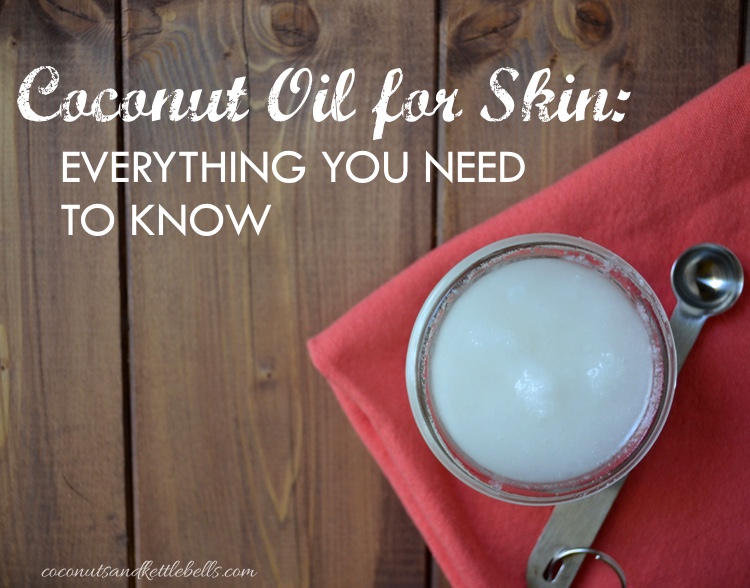Ready to leave?
Oops ! Condition name you have entered is invalid.
You are now leaving Aposbook.com and going to an external site managed by another organization.
Please confirm your email address and try to login again.
This account has been deleted. do you want to restore it?

Validate your email
A verification link will be sent to within the next 2 minutes. Please click it to validate your e mail.
*If you didn't get the link, please check your spam folder
Welcome to Aposbook,
As a registered user, you can benefit from the various free tools and services that we provide.
All you need to do is log in to start discussing with others, interacting, asking questions, and sharing your point of view about the various topics.
You can also write reviews and testimonials about any natural solution you have tried and share your experience. Your feedback can be very helpful.
If you are a health expert, you can add information about any topic or suggest text edit. You can also publish content, including articles and videos, about any topic from the related library section.
Together we can help.
The Aposbook Team
Forgot Password?
A validation link will be sent to you by email. Please confirm your address to log in
*If you didn't get the link, please check your spam folder
Please log in to use this feature
Your account has been suspended because you have violated our code of conduct. If you think this was a mistake, you can contact us by email at: support@aposbook.com "Contact us" form.
Success! Thank you for your feedback. Your contribution can make a difference. Together we can help each other.


Can Coconut Oil help improve Skin Health?
Complete Guide to Coconut Oil For Skin Anti-Aging
Possible causes of Skin Aging from the Coconut perspective
Healthy skin is the mirror of a young and healthy body. It should have a smooth texture and an even and consistent color. Healthy skin should also be hydrated, have no wrinkles or cracks, or show signs of redness.
As people get older, their skin can become thinner, more dried, and damaged. It can also start losing its vibrance and shine. While this is part of the aging process, environmental ...
Possible causes of Skin Aging from the Coconut perspective
Healthy skin is the mirror of a young and healthy body. It should have a smooth texture and an even and consistent color. Healthy skin should also be hydrated, have no wrinkles or cracks, or show signs of redness.
As people get older, their skin can become thinner, more dried, and damaged. It can also start losing its vibrance and shine. While this is part of the aging process, environmental and genetic factors can also affect skin health.
Many factors can affect our skin health, including the food we consume, the type of diet we follow, how much stress we are under, how much sun we are exposed to, and the climate we live in.
Improper use of skincare products also affects skin health. If we don’t manage these factors properly, we may end up with unhealthy skin.
Some of the factors damaging the skin might be managed by coconut. These include:
- Poor skin nutrition: failure to provide proper nutrition for the skin accelerates the process of aging. Depriving the skin of essential vitamins can also make it look tired and unhealthy.
- Lack of skin protection: protecting the skin from bacteria that can damage the skin.
- Skin dehydration: failure to provide proper moisture to the skin can cause dry and dull skin.
Learn everything about skin anti-aging and find all the natural solutions to improve skin health naturally, including various diet programs, alternative medicine, vitamins, supplements, herbal medicine, and home remedies.
Why Coconut Oil helps fight Skin Aging
Coconut oil might help protect skin and reduce skin aging because it can keep the skin well hydrated and provide it with essential vitamins that can help nourish it.
Coconut oil has a unique composition of vitamins (E), antioxidants, and medium-chain fatty acids (MCFA) that can slow down the aging process and keep the skin looking healthy and rejuvenated.
Furthermore, the lauric acid in coconut oil has antibacterial properties that can protect the ...
Why Coconut Oil helps fight Skin Aging
Coconut oil might help protect skin and reduce skin aging because it can keep the skin well hydrated and provide it with essential vitamins that can help nourish it.
Coconut oil has a unique composition of vitamins (E), antioxidants, and medium-chain fatty acids (MCFA) that can slow down the aging process and keep the skin looking healthy and rejuvenated.
Furthermore, the lauric acid in coconut oil has antibacterial properties that can protect the skin and keep it healthy. Linoleic acid (vitamin F) can also help keep it moisturized and help the skin regenerate and heal wounds.
How Coconut Oil works for Skin Aging
Given its special chemical and nutritional components, the coconut protects and nourishes the skin in several ways including:
- Skin moisturization: using coconut oil on the skin can keep it smooth and hydrated. Coconut oil is made up of medium-chain fatty acids (MCFAs) that can penetrate the skin quickly and reduce moisture loss from the pores. Coconut oil also contains vitamin E which keeps the skin smooth.
The study, “A randomized double-blind controlled ...
How Coconut Oil works for Skin Aging
Given its special chemical and nutritional components, the coconut protects and nourishes the skin in several ways including:
- Skin moisturization: using coconut oil on the skin can keep it smooth and hydrated. Coconut oil is made up of medium-chain fatty acids (MCFAs) that can penetrate the skin quickly and reduce moisture loss from the pores. Coconut oil also contains vitamin E which keeps the skin smooth.
The study, “A randomized double-blind controlled trial comparing extra virgin coconut oil with mineral oil as a moisturizer for mild to moderate xerosis” showed that regular coconut oil application on the skin could significantly improve skin hydration.
- Skin protection: the skin is susceptible to many types of infections that include acne and cellulitis caused by bacteria or fungus. Coconut oil contains lauric acid, which is a medium-chain fatty acid (MCFA) that has antimicrobial effects and helps fight against these types of infections.
Studies also show that coconut oil can heal wounds efficiently and protects the exposed wound from infections.
- Vitamins nutrition: coconut oil protects the skin because it is rich in vitamin E and other antioxidants that nourish the skin and prevent it from cracking.
- Anti-oxidant properties: coconut has antioxidant properties that prevent wrinkles and protect the skin from early aging.
How to use Coconut Oil for Skin Care
You can apply coconut oil directly to the skin on an as-need basis.
Currently, there is no official amount of coconut oil recommended to maintain healthy skin. However, you don’t need to use large amounts of coconut oil on your skin, small amounts are usually enough.
How to use Coconut Oil for Skin Care
You can apply coconut oil directly to the skin on an as-need basis.
Currently, there is no official amount of coconut oil recommended to maintain healthy skin. However, you don’t need to use large amounts of coconut oil on your skin, small amounts are usually enough.
Using Coconut for Skin Care: precautions
It is important to know that applying coconut oil excessively on the skin will not provide additional benefits. Coconut oil is also fairly comedogenic, which means that it can block the skin’s pores. If you do use too much coconut oil, your skin may begin to look oily, and you may also have clogged pores and acne.
When applying coconut products on the skin, hair, or body, you must keep in mind the following ...
Using Coconut for Skin Care: precautions
It is important to know that applying coconut oil excessively on the skin will not provide additional benefits. Coconut oil is also fairly comedogenic, which means that it can block the skin’s pores. If you do use too much coconut oil, your skin may begin to look oily, and you may also have clogged pores and acne.
When applying coconut products on the skin, hair, or body, you must keep in mind the following precautions:
- Test the oil on a small patch of skin: always use small amounts of coconut oil on the skin at first to see how it responds to it.
- Coconut oil may not be suitable for everyone: some people may experience adverse effects if they apply coconut products to their skin, especially if they have oily or sensitive skin.
- Allergies: some people are allergic to coconut oil. If you believe you are allergic to coconut, check with a healthcare professional to arrange a test and avoid all coconut products and foods to prevent an allergic reaction.
Using Coconut Oil for Skin Care: side effects
No content available at the moment. We are currently working on this. If you are an expert on this topic, please suggest related information.
Together we work to help the community.
Using Coconut Oil for Skin Care: side effects
No content available at the moment. We are currently working on this. If you are an expert on this topic, please suggest related information.
Together we work to help the community.
Reviews & Testimonials
-
Overall rating
-
Success Rate
-
Effectiveness
-
Accessiblity
-
Safety
-
Fast result
-
Ease of use
Add review
Was solution successfull?
Overall rating score
Rate each parameters
Effective
Accessible
Safe
Fast results
Easy to apply
Review title
Add images to support your review(if any)
Support images
You can review a solution if you have used it personally. Please remain objective and genuine. Your input can help others.
You have already reviewed this
Please rate all parameters.
Success! Thank you for your feedback. Your contribution can make a difference. Together we can help each other.
What science says about Coconut Oil For Skin Anti-Aging
Views in favor
Okay, Wait—Is Coconut Oil Actually the Key to Perfect Skin?
Views against
Coconut Oil is Ruining Your Skin
Library center Coconut Oil For Skin Anti-Aging
- Agero, A. L., & Verallo-Rowell, V. (2008). P15 A randomized double-blind controlled trial comparing extra-virgin coconut oil with mineral oil as a moisturizer for mild to moderate xerosis. Contact Dermatitis,50(3), 183-183. doi:10.1111/j.0105-1873.2004.00309ew.x
- Lin, T., Zhong, L., & Santiago, J. (2017). Anti-Inflammatory and Skin Barrier Repair Effects of Topical Application of Some Plant Oils. International Journal of Molecular Sciences,19(1), 70. doi:10.3390/ijms19010070
- Varma, S. R., Sivaprakasam, T. O., Arumugam, I., Dilip, N., Raghuraman, M., Pavan, K., . . . Paramesh, R. (2019). In vitro anti-inflammatory and skin protective properties of Virgin coconut oil. Journal of Traditional and Complementary Medicine,9(1), 5-14. doi:10.1016/j.jtcme.2017.06.012
- Yang, D., Pornpattananangkul, D., Nakatsuji, T., Chan, M., Carson, D., Huang, C., & Zhang, L. (2009). The antimicrobial activity of liposomal lauric acids against Propionibacterium acnes. Biomaterials,30(30), 6035-6040.





 Buy now
Buy now















[0]